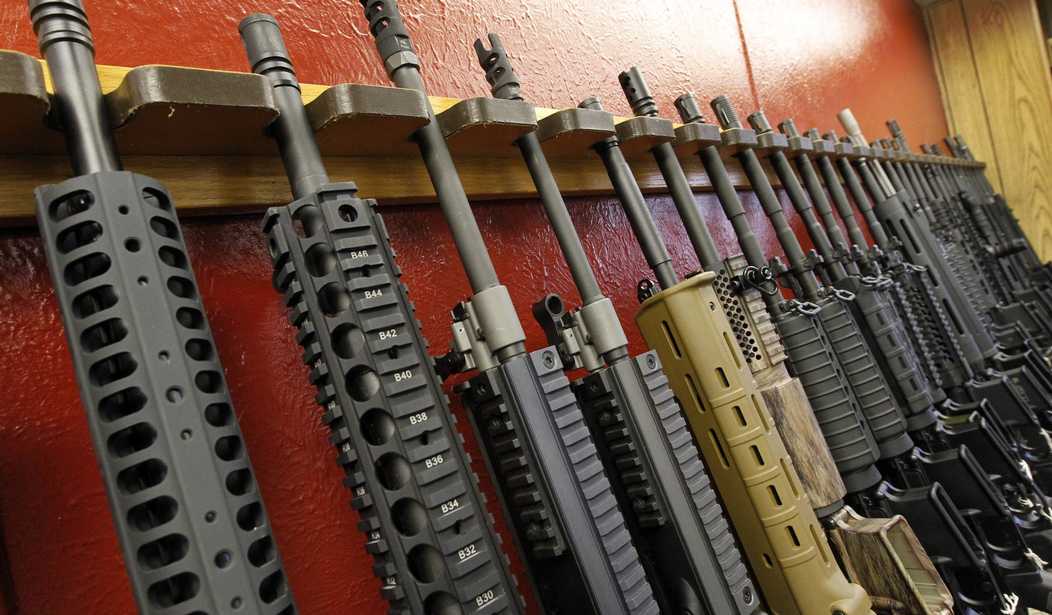In the wake of any mass shooting, we tend to spend a lot of time trying to figure out just what went wrong.
I actually like it when people ask those questions. I want us to figure out why these kinds of things happen and what we can do to try and circumvent them. I want to know why it seems to happen so often here in the Land of the Free.
And no, the answer isn’t guns.
Yet most people just aren’t that curious. They focus on guns and little else.
Or, if they do decide to opine on the topic, they tend to focus on their own ideological shibboleths.
When Maine Governor Janet Mills announced to the media that the shooter had been found dead, she emotionally stated, “This isn’t us.” But what if it is? What if it is exactly who we are?
America is a gun culture, with the Second Amendment’s right to bear arms part of our country’s holy scripture. Our gun culture is an extension of our colonial settler history. Colonists from Britain, France and Spain took by force the riches and land of the Indigenous population. The West was won at the barrel of a gun. There is hardly a place on this planet that has not been affected by the brutality and subjugation of the colonial era or the colonial powers waging war against each other. Little has changed since that time, other than the efficiency of the brutality and violence.
…
The land on which we stand has been poisoned by the aggression, violence and brutality that occurred here. We are doomed to repeat in ways big and small if we do not face this historical fact. In smaller ways, it is exhibited in this pandemic of a mass shootings but on the large scale by the way we wage war. As of 2017, America had been at war 93% of its history. That’s 222 out of 239 years since 1776. We must come to grips with our history of aggression and violence to know exactly who we are and how to break the cycle.
The trend right now to whitewash history and erase those stories just continues to make things worse. Banning books, banning words, trying to hide our history, will only create more injustices and put in jeopardy our nation’s future. This is not a coincidence; it is calculated to ensure that the narrative remains in the hands of those in power so they can maintain control. We must stop trying to hide the violence and abuse in our past. We must face it. We must come to terms with it and make a choice to change our society’s future. That’s the only way we can turn the course of our nation away from violence and toward peace and justice.
Somehow, I suspect the author is just fine with removing statues of people who fought on the wrong side of a war but doesn’t think demonizing the United States is a bad thing at all.
Yet we need to delve into is deeper premise here. Is there some trauma that somehow has been passed down the generations and is only now being seen?
I think we owe it to ourselves to look at this rationally and think about it.
The author is a big believer that “colonialism” is inherently negative and has left scars on us as a nation, but let’s look past that a bit and ask whether centuries of trauma might well be driving this.
And, well, if there is trauma that’s passing from generation to generation, especially trauma resulting from violence, it might well manifest itself as violent outbursts such as mass shootings.
But if this is legitimately the case, why is it only really happening in relatively recent times?
The era of the modern mass shooting tends to be marked as starting with Columbine, which happened in 1999. If intergenerational trauma was a thing and what we’re seeing is the result of that trauma, why did it wait for over 200 years after our nation’s founding to crop up?
Look, I respect anyone looking for answers, particularly when they don’t begin and end with gun control and nothing else, but this idea that all our ills result from “trauma” when there’s really not any evidence to support that supposition isn’t going to cut it.
This is leftist claptrap being reworked to try and capitalize on a different issue in hopes that it can somehow tilt the scales somehow. People aren’t interested in buying this idea of intergenerational trauma as a whole, so now they’re dressing it up as a cause for mass shooting.
It’s not actually a quest for answers but a repackaging of failed ideas in hopes someone will buy it this time around.
If the author wants to change that impression, he needs to bring something to back up these ideas and not just psychobabble.







